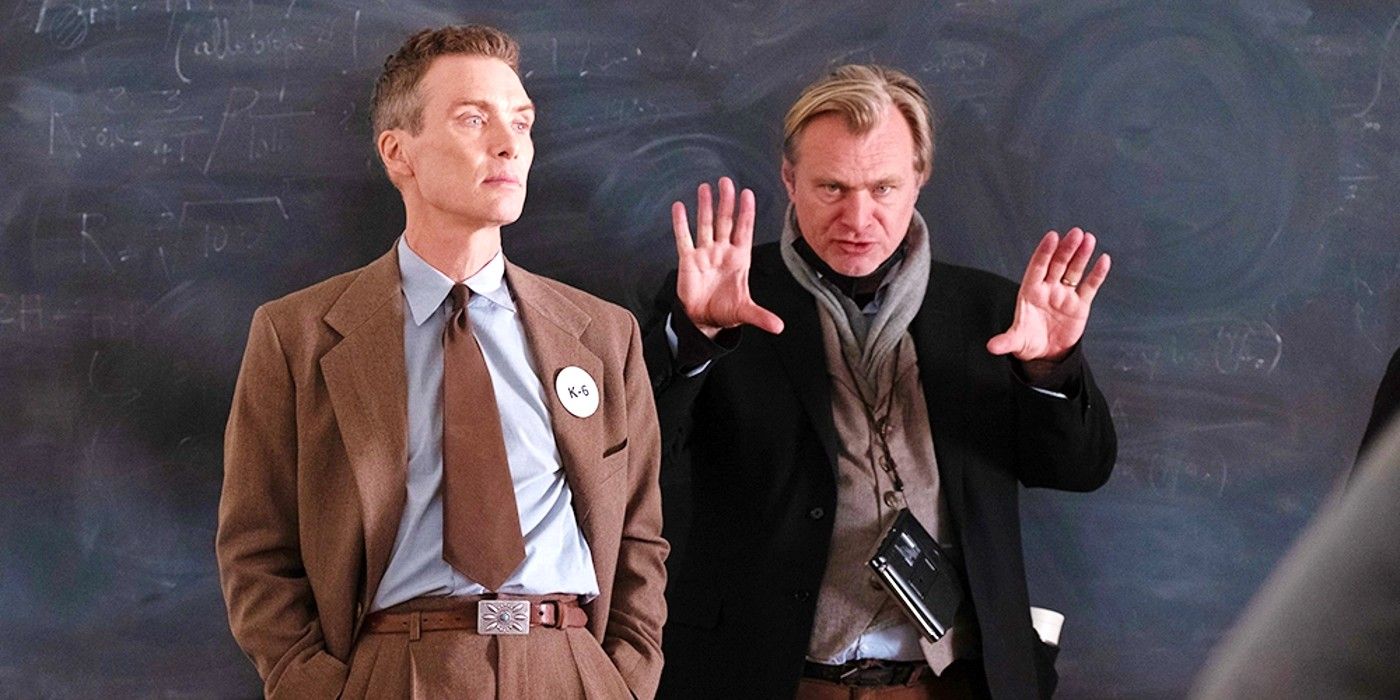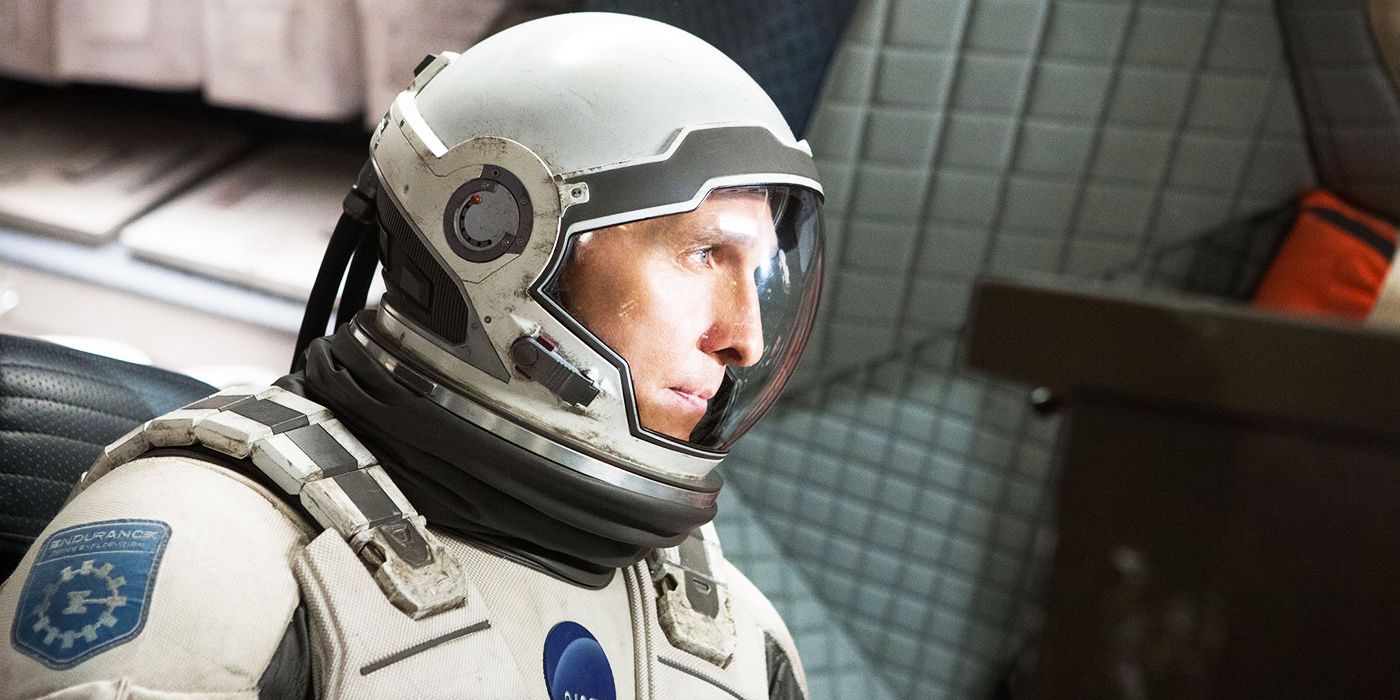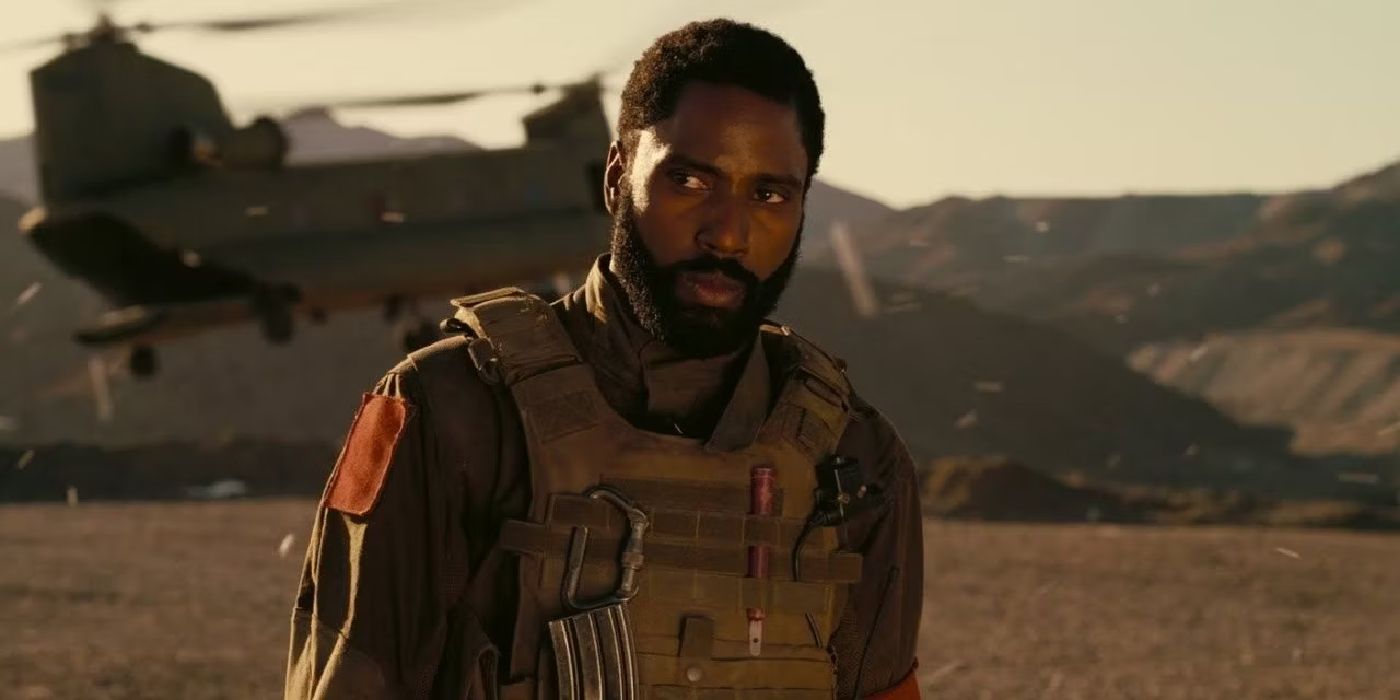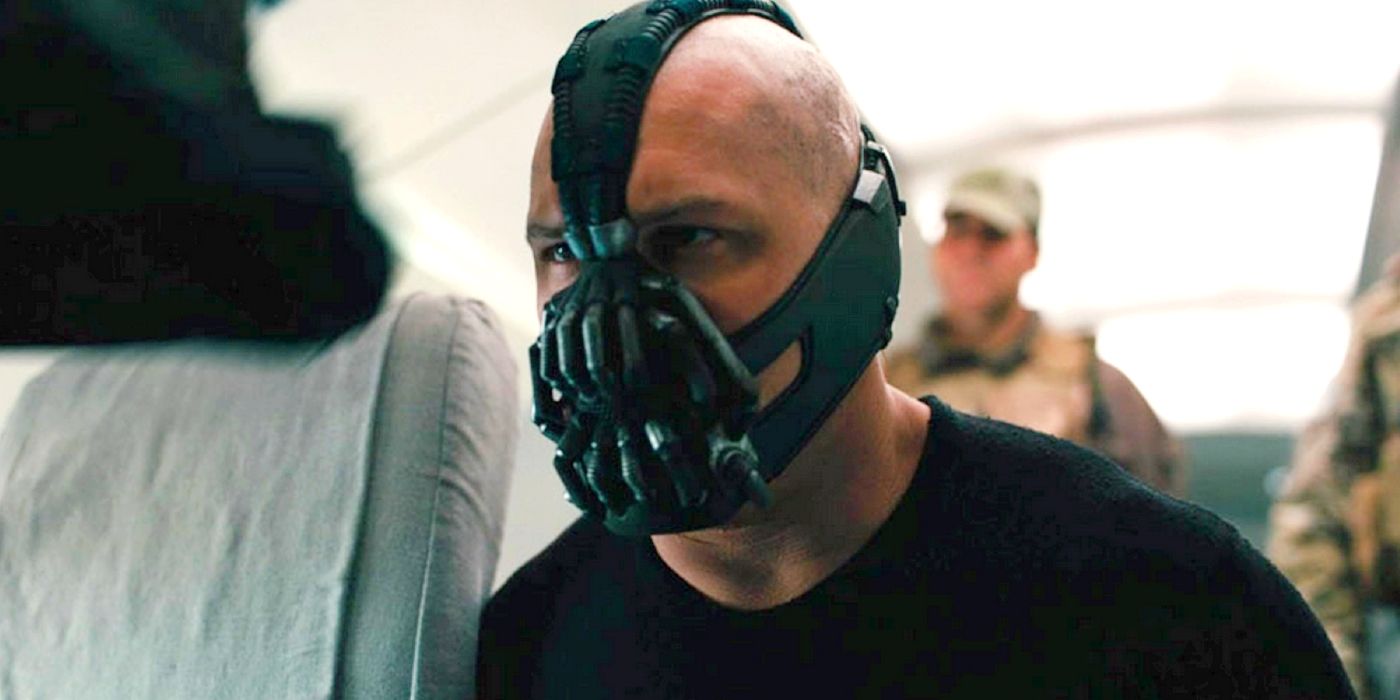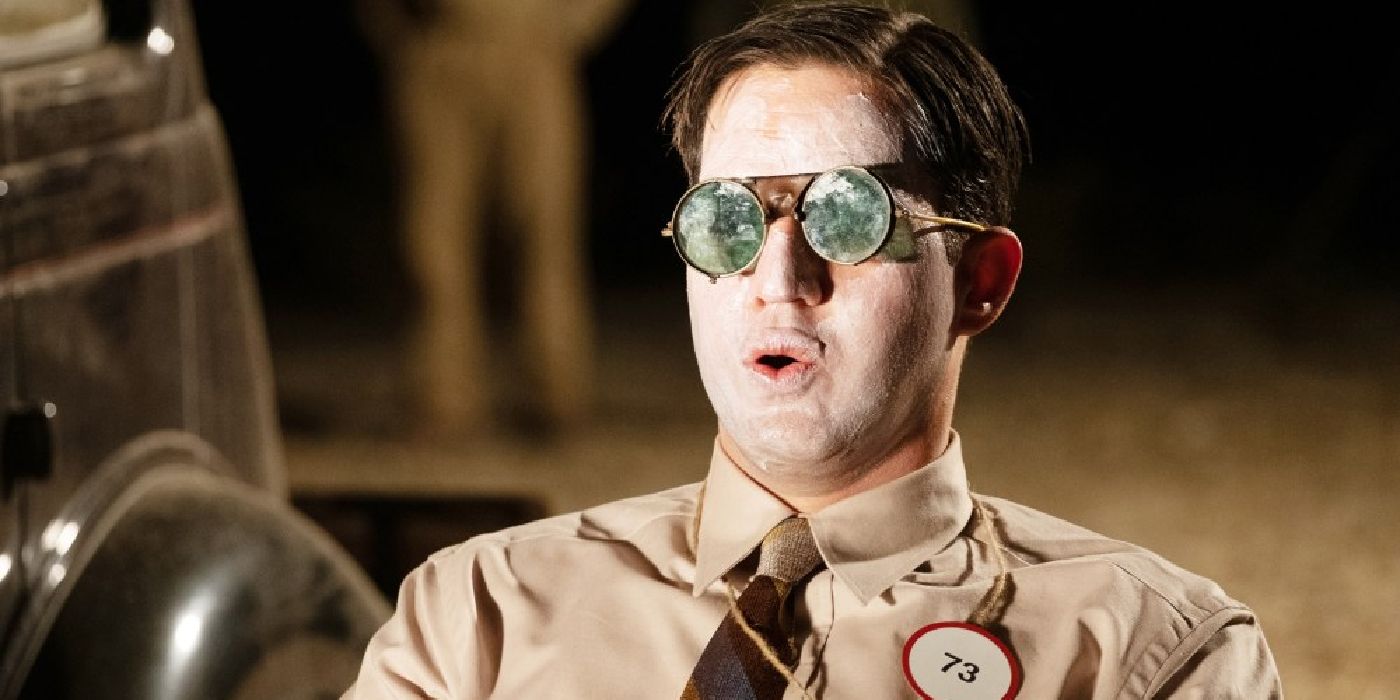Summary
- Christopher Nolan's sound design has long been criticized for making dialogue difficult to understand, a problem that persists in his new film "Oppenheimer."
- "Oppenheimer" is Nolan's first biopic and his first film in over two decades without heavy action sequences, resulting in improved sound quality for the dialogue.
- Nolan refuses to use ADR (Automated Dialogue Replacement) to fix sound issues, preferring to use the original performance, despite the fact that it often leads to muffled dialogue.
Christopher Nolan has long been criticized for his sound design, which makes it difficult to understand the characters' dialogue, and that problem has continued with Oppenheimer. The director's newest movie follows J. Robert Oppenheimer, an American physicist who led The Manhattan Project and created the atomic bomb. While Nolan is one of the most remarkable and beloved filmmakers of this generation, he often draws criticism for the way the sound is mixed in his movies. The dialogue in Nolan's films is mixed low and made hard to hear over the movies' scores and loud action sequences, which has weirdly always been an intentional choice of the director's.
Oppenheimer marks the first time that Nolan has ever made a biopic and, most notably, his first film in over two decades that doesn't heavily feature huge action sequences. With the exception of the Trinity Test, which is the showstopping scene when Oppenheimer and his team of physicists test their nuclear weapon, there is no huge action set piece in the 2023 movie. This results in the Oppenheimer sound issues being fixed, at least mostly. However, Nolan has openly discussed why dialogue issues keep happening in his films and why it likely won't ever change.
Christopher Nolan's Dialogue Issues Began Over 10 Years Ago
The sound issues in Christopher Nolan's movies haven't always been a problem, as his early crime movies such as Following, Memento, and Insomnia were all easy to understand. That was partly because the neo-noir movies lacked action and didn't have epic compositions from Hans Zimmer or Ludwig Göransson. Even Batman Begins and The Dark Knight - two huge, loud action movies - had easy-to-hear dialogue and the scores weren't overbearing. The first major sound issue in Nolan's career was Bane's (Tom Hardy) voice in 2012's The Dark Knight Rises. The villain was borderline impossible to understand through his mask, which made his voice way more distorted.
Interstellar was the first Christopher Nolan-directed movie that had major sound issues throughout the whole movie. Zimmer's scores for Nolan's movie, while great, massively interfered with the dialogue. Given that Nolan's movies are so complicated and exposition-heavy, missing some of the dialogue in Interstellar is way more detrimental than missing dialogue in most other movies. The problem reached new heights with 2020's Tenet, a movie about time travel. The movie was criticized for being way too confusing, and the endlessly muffled dialogue didn't help. However, those criticisms might have led to Oppenheimer having almost no sound issues.
What ADR Is & Why Christopher Nolan Doesn't Use It To Fix His Sound
ADR stands for Automated Dialogue Replacement, and it's a part of post-production that's done for almost every movie. ADR is the process of rerecording actors' dialogue in a studio to replace the lines that were badly recorded on set or not delivered properly by the actors. ADR also helps with action scenes, such as when dialogue might not be picked up properly when there's something like an explosion. Most of the time, it's hard to tell when a line of dialogue is ADR or the original recording, but other times, it's painfully obvious. Actors aren't actually interacting with other actors when recording ADR, so it doesn't always feel as authentic as the original on-set recording.
That's mostly why Nolan takes issue with the process of ADR (via Variety). The director explained, "I like to use the performance that was given in the moment rather than the actor re-voice it later, which is an artistic choice that some people disagree with, and that’s their right." Unfortunately, because of Nolan's refusal to use ADR, a lot of his dialogue gets muffled in with the rest of the sound. However, this was fixed to an extent with Oppenheimer even though Nolan is just as committed to the traditional process as ever, as none of the dialogue during the explosive Trinity test was ADR.
Did Christopher Nolan Tweak Bane's Dialogue In Dark Knight Rises?
Even though Bane's voice in The Dark Knight Rises was criticized to no end, it was still way better than what was originally recorded, as it was reported that the original mix of Bane's voice was impossible to understand. When Mission: Impossible - Ghost Protocol was released in 2011, the first six minutes of The Dark Knight Rises were previewed before the Tom Cruise movie on IMAX screens. While the first six minutes amazed audiences with its epic scale, as Bane and his League of Shadows thugs hijack a plane in midair, there was one major problem with it; Bane's dialogue.
While Nolan denied reports that the sound of Bane in The Dark Knight Rises was being fixed with ADR and Hardy rerecording his lines in a sound booth (via Indie Wire), there's a clear difference in sound quality between the IMAX preview and the final product. The character's dialogue sounds crystal clear compared to the six-minute preview that was released in 2011. It's likely that Warner Bros. even made the decision to preview the first six minutes not only to market the movie but to try and gauge the response to Hardy's voice and understand whether the dialogue would have to be re-recorded.
Christopher Nolan's Dialogue Problems Aren't Going To Go Away
Given that Nolan didn't use ADR for Oppenheimer, not even for the Trinity Test showstopper, it's clear that the director has no interest in fully fixing his sound mixing problem. The filmmaker explained in an interview with THR, "I don't agree with the idea that you can only achieve clarity through dialogue... I try to achieve that in a very layered way using all the different things at my disposal — picture and sound." Nevertheless, given that about 98% of Oppenheimer's dialogue is easy to hear, Nolan is undoubtedly improving and there's no reason why he can't further enhance his skills when it comes to audio without the use of ADR.
However, Oppenheimer's audio being clearer might have something to do with the fact that it's a historical drama as opposed to a blockbuster action movie. Unfortunately, Nolan faces other challenges when it comes to sound mixing that few other directors do. Nolan insists on using IMAX cameras, which are famously loud, for almost every scene. The filmmaker uses digital software that removes camera noise, but that software still isn't perfect. As long as Christopher Nolan continues to disregard ADR and continues to use IMAX cameras, his audio won't be perfect either, but it's a small price to pay for the sheer spectacle of movies like Oppenheimer.
Source: Variety, Indie Wire, THR

